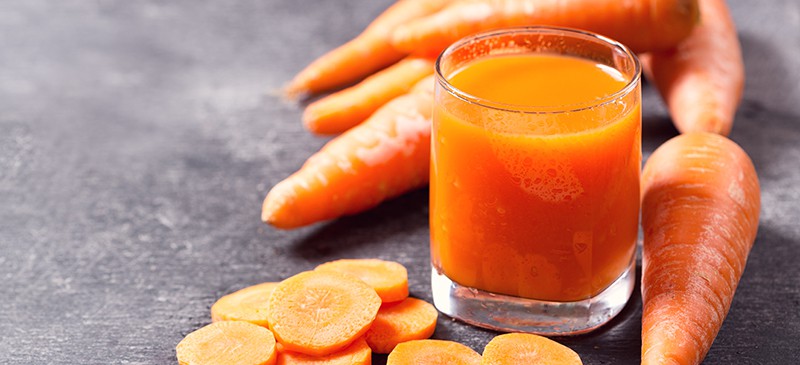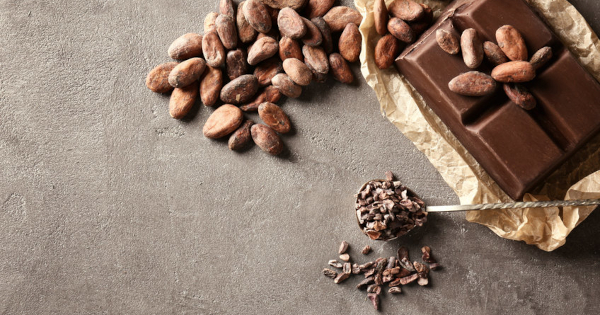
Five Best Antitussive Agents to Relieve Cough Naturally
If you're dealing with a nagging cough due to a bout of cold or flu, or because of a chronic illness like bronchitis or sinusitis, fast relief from symptoms is a must. But what can safely and reliably ease a persistent cough without risk of serious side effects, including dependency?
Medicated cough syrups often contain psychoactive ingredients like dextromethorphan (DM) and promethazine-codeine, which can be habit-forming and dangerous, especially for children. With potential side effects including irregular heartbeat and blood pressure, liver damage, extreme agitation, brain damage and even death,[i] there is a pronounced need for effective and safe cough remedies.
To address this need, we've compiled compelling evidence for five of the best antitussive agents to relieve your cough naturally, without the risks.
1. Marshmallow Root
Marshmallow root is an edible plant that has been used for thousands of years for medicinal purposes, and yes -- it gave the popular confection its name. A natural mucilage, the fibers of marshmallow root swell when exposed to water, providing a protective coating to membranes. Thanks to this ability, the sap from the marshmallow plant was once used to treat ailments like cough and sore throat, as well as reduce swelling and inflammation in nasal passages, bronchial airways and your digestive system.[ii]
This long history of use in medicinal products spurred researchers in Germany to test marshmallow root extracts on patients with chronic dry cough. Two prospective, non-interventional surveys were conducted on 822 participants buying either lozenges or syrup of marshmallow root extract to treat their cough. They were asked to complete a questionnaire on the overall effectiveness and tolerability of the marshmallow root therapy, and to rate their overall satisfaction with the treatment, over the course of seven days.
The consumer-reported outcomes showed that both the lozenges and cough syrup produced "very good effects" on oral and pharyngeal irritation and associated dry cough with onset of effects in as little as 10 minutes for most users, with very good tolerability.[iii]
A 2020 study evaluating the efficacy of marshmallow root for management of cough and other respiratory problems, analyzed both human and animal studies and found that marshmallow root extract, when combined with other plant extracts, was a good choice for cough, sore throat and other respiratory ailments thanks to its expectorant and antitussive effects.[iv]
2. Homeopathics
The practice of homeopathy has been around for hundreds of years and is based on the principle that "like-cures-like." A homeopathic treatment will generally be a diluted form of whatever substance is causing symptoms in a healthy person. For example, seasonal allergies may be treated by a diluted solution of those same allergens to build a naturally robust immune response to exposure.[v]
Homeopathic treatments for mild viral infections are usually directed at providing relief from symptoms such as cough, fever, muscle aches and sore throat. A 2004 study compared the efficacy of a popular homeopathic cold remedy, Gripp-Heel, with conventional cold medicines. A cohort of 485 patients with mild viral infections were treated conventionally or with homeopathics, then evaluated by medical practitioners who found that the homeopathic therapy was just as effective, if not more so, than the conventional therapies.[vi]
Overall, homeopathic treatments were successful at remediating symptoms in 78.1% of cases versus 52.2% of patients treated with conventional therapies. Treatment tolerability and compliance were good for both groups, with the verdict "very good" given for 88.9% of patients in the homeopathic group versus just 38.8% in the conventional treatment group.[vii]
3. Honey
Pure, golden honey is one of nature's oldest gifts to humankind. Honey's traditional medicinal applications run the gamut, from easing insomnia, thanks to a hypnotic action, to restoring balance to the lungs.[viii] Both of these effects combine to make honey an apt substitute for narcotic nighttime cough medicines, especially for children with cough and troubled sleep.
Researchers compared the effects of a single nighttime dose of buckwheat honey against a traditional honey-flavored DM cough syrup for treating nocturnal cough and sleep difficulty in children with upper respiratory tract infections. A third group was given no treatment as a control. Surveys were administered to parents to gauge the effects of honey, DM or no treatment, according to a partially double-blinded randomization scheme.
A total of 105 children were evaluated at a general pediatric practice with surveys measuring the outcomes of effects on cough frequency and severity, bothersome nature of cough, and child and parent sleep quality. The single dose treatment was administered 30 minutes prior to bedtime.
Results were noteworthy, with significant differences in symptom improvement between treatment groups. Honey consistently scored the best, with ‘no treatment' scoring the worst. In paired comparisons, honey was significantly superior to no treatment for cough frequency and overall combined score. Remarkably, the conventional cough remedy, DM, did not produce better outcomes than no treatment for any measure. Overall, parents rated honey most favorably for symptomatic relief of their child's nocturnal cough and sleep difficulty due to upper respiratory tract infection.[ix]
4. Ivy and Thyme
You may be surprised to learn that ivy is a traditional medicinal in many parts of the world. Used to treat asthma, bronchitis and cough, ivy's anti-mucolytic and anti-inflammatory properties have been shown to be as effective as the mucus-dissolving drug ambroxol for treating chronic bronchitis.[x] Combining this potent extract with thyme, a medicinal and culinary herb with antispasmodic effects, can accelerate recovery and enhance the treatment of cough associated with infection.[xi]
A 2006 study sought to assess the efficacy and tolerability of a fluid extract combining thyme and ivy leaves compared to placebo in patients suffering from acute bronchitis with a productive cough. A total of 361 outpatients with acute bronchitis involving more than 10 coughing fits per day and bronchial mucus that could not be expelled through coughing were randomly assigned to an 11-day treatment with either thyme-ivy combination syrup or placebo syrup. Bronchitis severity was scored at baseline (day zero), day four of treatment and day 10, at the end of treatment.
Patients evaluated the efficacy of treatment by counting their daily number of coughing fits, assessment of acute bronchitis-related symptoms and by the investigators' assessment of the most important symptoms of acute bronchitis using the bronchitis severity score. Treatment tolerability was evaluated based on adverse events reported, measurement of vital signs, as well as the change in frequency of daytime coughing fits on days seven to nine, as self-reported by patients, who used a manual cough counter and kept a daily diary of symptoms.
Results showed a mean reduction in coughing fits by a whopping 68.7% with the thyme-ivy combination, compared to 47.6 % with placebo. Additionally, a 50% reduction in coughing fits from baseline was reached two days earlier in the thyme-ivy group. The thyme-ivy combination extract was well tolerated with no severe or serious adverse events reported.[xii]
5. Nigella Sativa
Nigella sativa seeds, known as black cumin or black seed, have been used as a traditional herbal medicine for thousands of years. Black seed's ability to ease breathing and reduce phlegm make it a popular natural treatment option for sufferers of bronchial asthma and chronic cough.[xiii]
A 2019 meta-analysis on the clinical and experimental effects of Nigella sativa on respiratory and allergic disorders found that black seed possesses an array of therapeutic properties that benefit cough, including anti-inflammatory, antihistaminic, antiallergic, antitussive and bronchodilatory properties.[xiv]
Clinical studies on Nigella sativa extract also showed bronchodilatory and preventive properties when given to asthmatic patients and demonstrated therapeutic effects on various allergic disorders. Researchers concluded that Nigella sativa and its constituents are effective remedies for treatment of allergic and obstructive lung diseases that may produce chronic cough.[xv]
To learn more about natural antitussive agents, consult GreenMedInfo.com, the world's most widely referenced, evidence-based natural medical resource.
"© [7/13/22] GreenMedInfo LLC. This work is reproduced and distributed with the permission of GreenMedInfo LLC. Want to learn more from GreenMedInfo? Sign up for the newsletter here //www.greenmedinfo.com/greenmed/newsletter."
------------------------------------------------------
Pedagogy Inc. offers multiple online education courses that will improve the acuity of respiratory care for healthcare providers. Click here to see all that we have to offer in respiratory continuing education!
Respiratory Classes:
Getting Started
Our courses are available for purchase by the individual or facility. For individuals, register with us to create your username and password, click on the course title of interest and then click the Buy Now button. For a complete listing of all our online continuing education courses click here.
For facilities or organizations that would like to purchase education for their staff, email sales@pedagogyeducation.com let us know the course(s) of interest and how many staff members you need to provide education for, and we will be happy to send you a price quote!

.jpg.aspx)